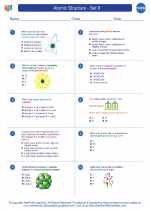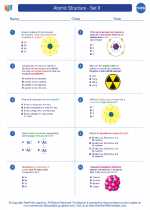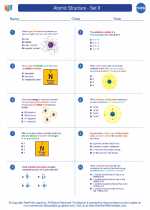Embryonic Development
Embryonic development is the process by which a single-celled zygote develops into a multicellular organism. This process involves a series of coordinated events, including cell division, differentiation, and morphogenesis, leading to the formation of tissues, organs, and ultimately a fully developed organism.
Key Concepts
- Fertilization: The union of a sperm cell and an egg cell to form a zygote.
- Cleavage: Rapid cell division of the zygote, resulting in the formation of a multicellular structure called a morula.
- Gastrulation: The process by which the cells of the embryo reorganize to form three primary germ layers: ectoderm, mesoderm, and endoderm.
- Organogenesis: The formation of organs from the germ layers through a series of complex developmental processes.
- Cell Differentiation: The process by which cells become specialized in structure and function.
Stages of Embryonic Development
Embryonic development can be divided into several distinct stages:
- Fertilization: The fusion of sperm and egg to form a zygote.
- Cleavage: Rapid cell division of the zygote without overall growth, resulting in the formation of a solid ball of cells called a morula.
- Blastulation: Formation of a fluid-filled cavity (blastocoel) within the morula, resulting in the formation of a structure called a blastula.
- Gastrulation: Rearrangement of cells within the blastula to form three germ layers: ectoderm, mesoderm, and endoderm.
- Neurulation: Formation of the neural tube from the ectoderm, giving rise to the nervous system.
- Organogenesis: Development and differentiation of the germ layers into specific organs and tissues.
Regulation of Development
Embryonic development is tightly regulated by a complex network of signaling pathways and genetic programs. Key regulators of development include transcription factors, signaling molecules, and morphogens, which coordinate the spatial and temporal patterning of tissues and organs.
Study Tips
To effectively study embryonic development, consider the following tips:
- Understand the key stages of embryonic development and the major events that occur during each stage.
- Learn the principles of cell differentiation and the formation of the three germ layers.
- Explore the role of key signaling pathways and genetic factors in regulating embryonic development.
- Use diagrams and visual aids to help illustrate the processes and structures involved in embryonic development.
- Consider real-life examples of embryonic development in model organisms such as fruit flies, zebrafish, and mice.
By mastering the concepts and processes of embryonic development, you can gain a deeper understanding of how complex organisms develop from a single fertilized egg.
.◂Chemistry Worksheets and Study Guides High School. Atomic Structure - Set II

 Worksheet/Answer key
Worksheet/Answer key
 Worksheet/Answer key
Worksheet/Answer key
